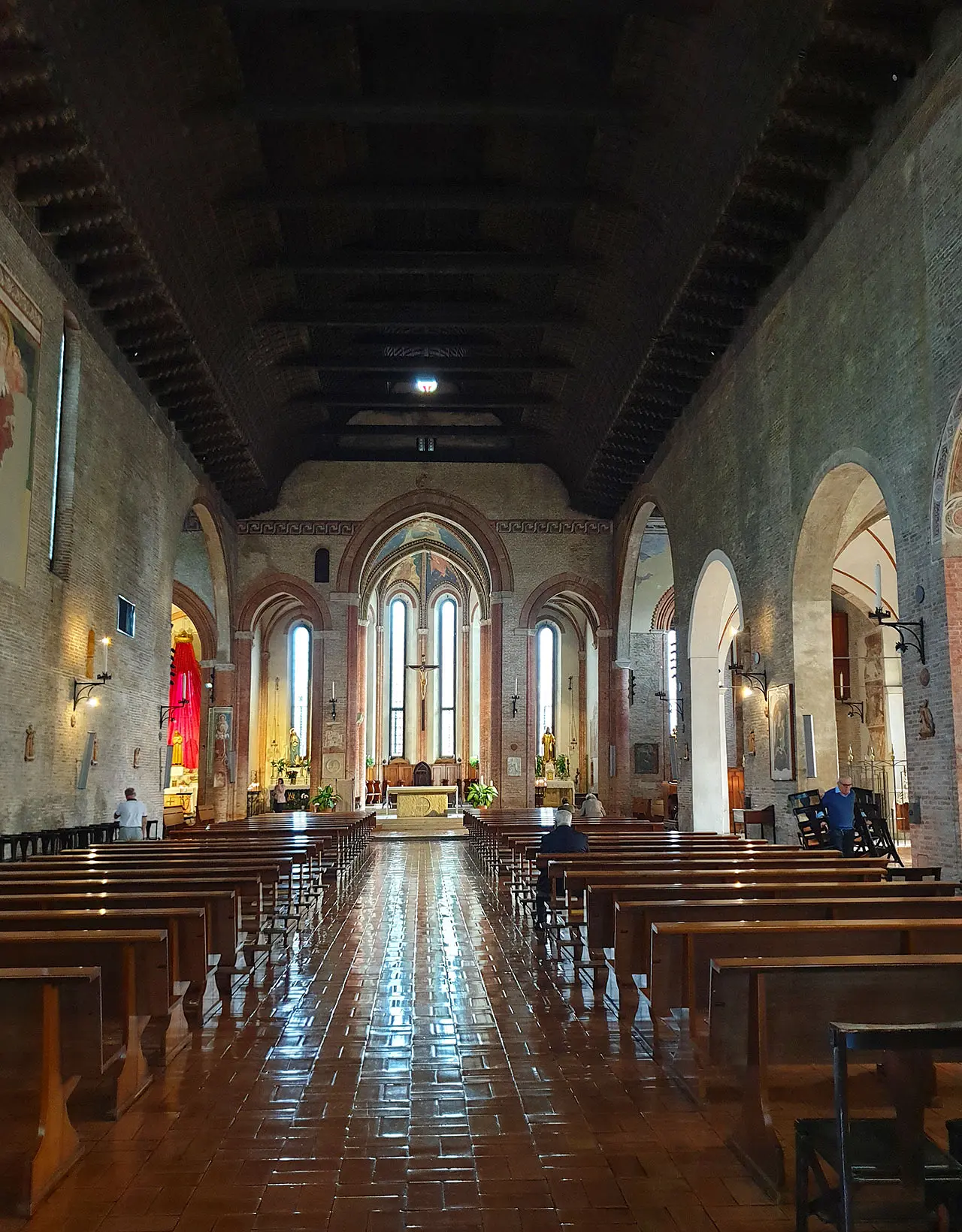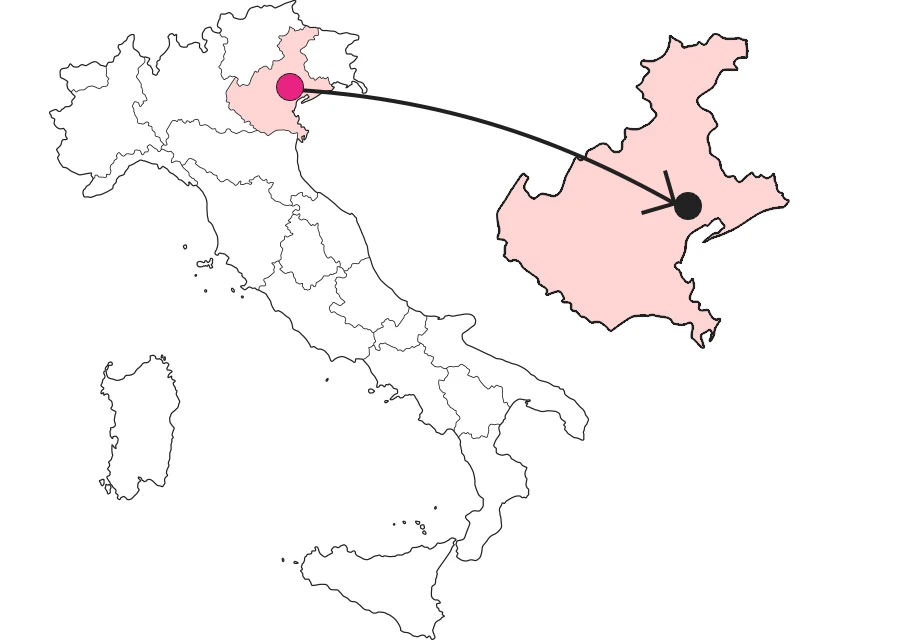












Church of St. Francis, a "Pantheon" in the heart of Treviso
When simplicity is only apparent



Where

What it is and where it is
If you walk along the Renaissance Walls and head toward the historic center, you will come across a slender bronze friar in harmonious dialogue with Nature. Easy to recognize, it is St. Francis who welcomes us to the unique place of worship named after him in the heart of Treviso. Here his spirit speaks to us through powerful symbolism in every detail. In the rigorous sobriety of its gabled facade. In the barn-like nave suited to preaching. In the inverted ship's keel ceiling, a symbol of salvation, Celestial Vault dotted with stars. In the unadorned walls, illuminated by the light of the East, where the Sun rises, where Jesus was born.
Why it is special
There is still an echo of the merciful welcome of the Franciscan Friars, who came to Treviso at the behest, according to tradition, of St. Francis himself. Today, it is the Pantheon of the city, the custodian of important memories. Many, in fact, are the characters dear to the city's History who rest here: Pietro Alighieri, son of the Supreme Poet, in a suspended Ark. In a buried tombstone are the remains of Francesca Petrarch, the great writer's natural daughter. There is also no shortage of evidence of Tomaso da Modena's love for the city: here, in an atmosphere suspended between light and shadow, the sweetness and truth of his "Madonna Enthroned with Child and Saints" is revealed.
Not to be missed
Proceeding down the nave, there it is, set in the center of the Gothic apse, the High Altar appears to us , an authentic testimony to the great Mystery of Faith, because singular is its origin. Carved from the stone of Mount La Verna, where St. Francis in 1224 received the stigmata, it was donated by the City of Florence on October 4, 1928, on the occasion of its reopening for worship. And then from the side wall a large and mutilated St. Christopher sternly observes us. But do not hesitate to look him straight in the eye. According to a popular belief looking at the image of the saint would protect, for that day, from death and misfortune. Try it to believe!
A bit of history
Long and complex is the history of this 13th-century temple, in the Romanesque-Gothic Po Valley style, which originated from an early small Franciscan settlement outside the Walls. As the community grew, on land donated by Buon Gherardo da Camino, the building of the church began in 1230. Over the years, however, numerous enlargements and restorations would follow, due to fires, wars, and the Napoleonic suppressions, which reduced the temple to a warehouse and military hospital, lofting the interior spaces with serious damage to the artistic heritage. Until 1928, when the church was returned to worship.
Trivia
As you enter through the side door, stop to observe a curious Crucifix painted on the pillar to your left: it is the result of a punishment inflicted on a certain Wolf, a Jewish innkeeper, who was forced to pay for its execution as punishment for serving meat to Christians on a Friday.
Enter the Map of Italy's Undiscovered Wonders and find treasures where you least expect it... Inspire, Recommend, Share...
Contacts
The Map thanks:
Enter the Map of Italy's Undiscovered Wonders and find treasures where you least expect it... Inspire, Recommend, Share...
Where

Contacts

